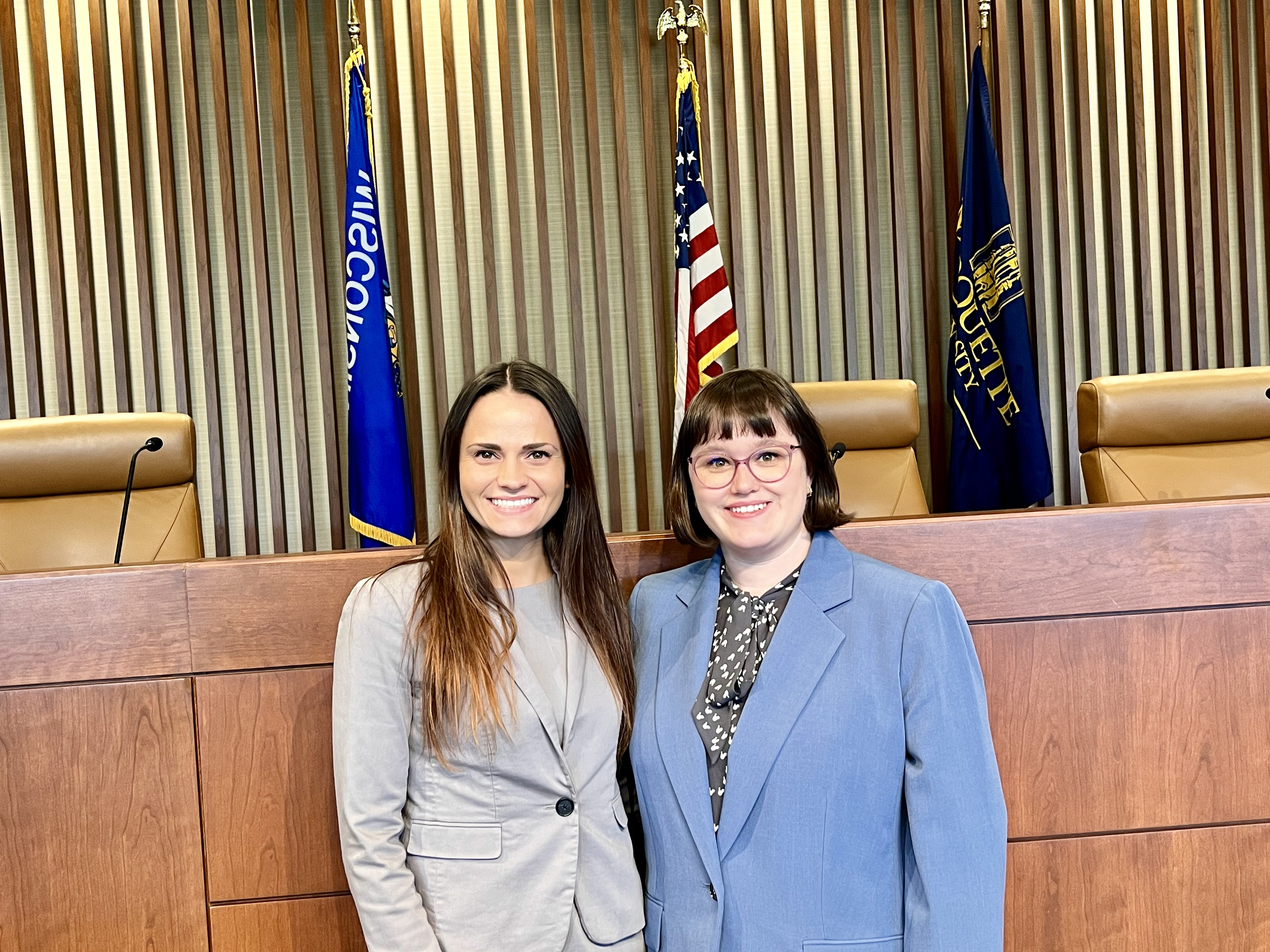
Anna Ranger (’24) and Anna Greer (’24)—known by their team name, “Anna Squared”—were one of 24 teams from across the country to compete at the New York City Bar Association National Moot Court Competition in February 2024. Coached by Assistant Dean of Experiential Learning Martha Pagliari, they submitted a brief that ranked eighth nationally,
advanced as a Top 10 seeded team, and missed moving on to the quarterfinals by less than one point.
Greer has a background in feminist activism and came to law school “to be a more effective change maker,” while Ranger possesses a business background and served as a consultant before coming to law school. They were both drawn to moot court because it appealed to their competitive sides–Ranger calls it “sports for law,” while Greer appreciates how “it’s positive, when law school can be a trap for negative competition.”
Greer and Ranger were selected for the New York competition out of DePaul’s 28-person Moot Court Society. Neither expected to work together, but Ranger realizes that “someone saw something between us, and we got very, very lucky.” Greer adds, “We just clicked. We have very different oral advocacy styles, but when we swapped our first drafts [of the brief], we felt like we were reading something we already wrote.” They learned to listen to and trust each other, and their differences eventually became their strengths. Ranger recalls, “We used those [differences] to prop each other up. When you’re part of a team you need to encourage and be there for each other. [You need to] embrace the differences—not just embrace but promote.”
Another reason for their impressive achievements was that the topic for the National Moot Court Competition played to their respective strengths. The problem concerned whether the United States could prosecute an influencer who lived outside the country under the Securities Act for her promotion of cryptocurrency on social media. Anna Squared argued on behalf of the U.S. Securities & Exchange Commission and an injured investor, with Ranger handling securities regulations and Greer focusing on personal jurisdiction. They found the topic exciting due to its topicality and because the U.S. Supreme Court has not yet weighed in on some of the issues, so it was difficult to know how the competition judges would ultimately evaluate their arguments.
Both Greer and Ranger called moot court a highlight of their law school experience. Although it required a huge time commitment—they only had about eight weeks between receiving the problem and going to regionals—the practical skills they gained were invaluable. Greer says, “it helped me feel comfortable the first time I stood up in front of a judge while externing with the Cook County Public Defender.” Ranger appreciated how the brief writing process made her a better legal researcher and writer, as well as a better collaborator, “because moot court makes you think on behalf of others.”
After law school, Ranger will continue in business law and has a position lined up with Howard & Howard. She says she “ideally sees [herself] in a courtroom, because this [moot court] experience highlighted that for me.” Greer wants to do public interest work, especially impact litigation, and she, too, aspires to return to the courtroom, though she says, “As long as I’m helping people, I’m good.”